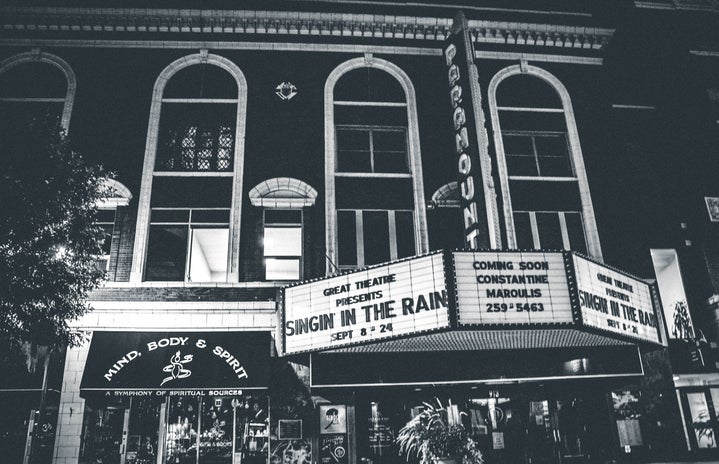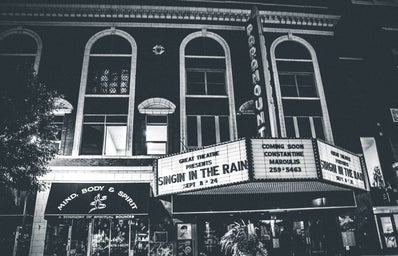Like any normal, self-sufficient young adult, I went through a period in my middle and high school years absolutely obsessed with stories like The Hunger Games, Grey’s Anatomy and Harry Potter. And, I mean, for good reason, obviously (have you seen Finnick Odair?). But despite taking every sorting and choosing quizzes that the internet had, I never really found myself totally bent out of shape when a character died. Yes, I shed a few tears when Prim died, and yes, Lexie’s death was absolutely unnecessary — but I never actually understood that characters mean more to some people than just being another pillar of the story. Or, at least I didn’t, until now.
This past summer I binged The 100 on Netflix. When I say the story of Clarke Griffin consumed my summer, I quite literally mean it. And despite some rather questionable writing choices and a less-than-stellar final season, The 100 really is a good show. However, if you had asked me in May if I would’ve been ugly crying on my sofa for two hours after Bellamy Blake was killed off less than five episodes from the series’ end, I would’ve laughed (or scoffed) and said, “not possible.” But, that’s exactly what happened. The 100 grabbed me by my heartstrings, tugged and made me a mess of emotions. Ironically, and maybe a bit of karma was in action here too, I get it now. I understand why people say characters in different series deserved better. So, without any further ado, here are six characters who not only deserved a better ending than what they got, but their fans deserved one too.
Warning: The videos below may contain content that some readers may find disturbing.
- Primrose Everdeen
-
Prim’s death in Mockingjay – Part 2 is easily one thing that the entire Hunger Games fandom agrees on being brutal, unnecessary and heartbreaking. Not only did Prim die so young and so innocent, but her death was, in a way, at the hands of Katniss’ long-time friend, Gale. All Prim really ever wanted was to help people; to be good. We see through the series how she feels a sense of responsibility to give back to her district (and frankly to humanity as a whole) after Katniss took her place during the original reaping ceremony. Prim’s death is perhaps one of the most pivotal moments that would go on to change the way Katniss viewed the Capitol and the world forever.
- Finnick Odair
-
Finnick, oh Finnick. When we were first introduced to him in Catching Fire, I didn’t really know what to make of him. I mean, his first impression leaves you thinking he’s nothing more than another arrogant, self-interested tribute in the games. Or, at least, Katniss certainly thought so. However, as we learned more about Finnick’s life and background, he weaseled his way into just about everyone’s hearts. He becomes not only an ally of Katniss but a friend. His death scene itself isn’t what earned him a place on my list, but rather, it’s what his death meant he was leaving behind, and what he wasn’t going to ever be able to experience — like watching his child grow up.
- Lexie Grey
-
If you ever want to talk about unnecessary deaths on television, you have to start with Lexie Grey. I know actors always have their own reasons for choosing to leave a job, so by no means am I faulting Chyler Leigh here. I simply just mean that Lexie Grey (in the Grey’s universe) really had a very, very unnecessary death. She hadn’t accomplished all that she wanted to, she hadn’t truly gotten to experience her one big love, and she certainly wasn’t done learning. But I guess that’s maybe the lesson — death doesn’t wait for anyone; it just comes when it comes.
- Remus Lupin & Fred Weasley
-
These two are going to have to go hand in hand because it wouldn’t be fair to say one’s death was more important or more heartbreaking than the other. I, like many others, have a few bones to pick with J.K. Rowling when it comes to her views in general and her writing choices. My biggest issue with the Harry Potter series as a whole is how many “just for the heck of it” deaths there are. I understand that not every character, in any series, will always make it to the end, but killing off characters before they get to truly live just because you can isn’t the serve some storytellers think it is. I’ve always been told that with writing, killing a character has to mean something more. Mean something more is a broad phrase, I get that, but Fred and Remus didn’t have to die for the story to move forward.
- Bellamy Blake
-
Ah yes, here we go. I won’t get on my soapbox too much here, and believe me, I really could, but I will say this: everything I’ve just talked about — deaths being unnecessary and happening before a character experiences happiness and love, them leaving behind an untold story, their death just being “for the heck of it” — is combined tenfold in Bellamy Blake’s heartless end. He died at the hand of his best friend, over a sketchbook (yes, you heard me right, a children’s sketchbook), that was later not even relevant to the plot. He never got to have his sister say she was proud of him, he never got to have his own children, he never got a minute to just breathe. There was something about his death that actually broke a little piece of my heart off and made me understand that characters are more than just make-believe.
Well, there you have it: six characters who deserved better than their writers could give them. You know, they say that your brain can’t comprehend the difference between the death of a real person and a fictional character; that it grieves just the same. And maybe that’s true. While I don’t have all the answers as to why storytellers make the choices they do, I’m telling you right here and right now that it’s perfectly normal to feel something when a character meets their end.



